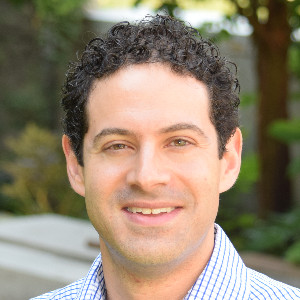Practicing on the Preplounge maths tool, how many 'hard' multiplications should you be able to do in your head without using paper? In interviews, will firms just give you a cold sum and ask you to do it in your head - how long is too long and how long is quick for say, 27*86 ?
How fast (sums/minute) should you be able to do mental math?


Hi there,
I agree with Henning, you don’t need to perform math in your head unless the interviewer explicitly asks to do so, which is rare.
If you really have to do math in your head due to the interviewer's request, my suggestion is to increase the number of steps to simplify the math. You will be slower but far more accurate, which is always better:
27*86 --> 30*86 – 3*86 = 30*86*0,9 = (30*90 – 30*4)*0,9 =(2700 – 120)*0,9= 2580 – 258 = 2322
Best,
Francesco

I would not do 27*86 in my head. It's perfectly fine to do this in writing. In fact, better do it on paper and get it right, than do mental math and get it wrong.
Of the 120 actual interviews I've done, there was probably only 1 or 2 candidates that impressed me with mental math. And even for them, it did not move the needle of the overall case assessment. On the flipside there were numerous candidates that were too ambitous and got thrown off course by messing up mental math.
My recommendation: don't aim for speed, but for accuracy. Know your capabilities and play defense, not offense when it comes to the quant part.

Hi Anonymous,
In the first place, make sure that you end up with the correct result.
5 seconds and wrong result = fail
15 seconds and correct result = pass
Obviously you need to show that you are comfortable with numbers and that you can do math. If you can do it mentally, great. If not, use paper and give me the result. Since this is something simple to train you won't get a lot of bonus points any way, just don't do it wrong.
Hope that helps - if so, please be so kind and give it a thumbs-up with the green upvote below!
Robert

Sometimes its also perfectly okay to round up/down slightly to make the math easier. Make sure you validate this with the interviewer if you can, otherwise just do it and make the interviewer aware. You wont be penalised in the grand scheme of things if your answers are 5-10% within error. But use this style with caution depending on the case and situation.
e.g 27*86 could be 25*85
Personally when am interviewing I do give some slack to candidates to simplify the math but it will vary from interviewer to interviewer and company to company.
Hello, The question is very simple to be honest as all my referalls are passing a rigourious time math calculation pressure and training. Despite comments the best is to calculate it in your head still the problem is that the level of stress that you will find during your interview will be very high and will cause issues to concentrate. This is why you need to practice a lot just to have a confort that the calculation methodology will be automatic for you. The time of calculation is as follow :
Beginner - 25 seconds or more
First week of pracitce - around 15 seconds
2-3 weeks of practice - around 12 seconds
4+ weeks of practice - around 10 seconds
I always recommend to enter the interview with a timing below 10s. My average score when I was entering the intererview were 6-7 seconds (None of my referalls have reached this level yet).
I hope it's practical. Let me know if you would like to meet and understand my methodology of calculation and the training approach.
Sincerely,
Oscar

The bottom line is that if you are uncomfortable with your speed, just use pen and paper.
Consultancies are testing for comfort with numbers, not mental math. So you really lose nothing if you do it on paper. On the other hand, if you make a mistake or choose to simplify in order to make the calculations easier, you can sidetrack your case.
As usual, think about real life. Is there ever a situation where you need to be able to preform difficult mental math quickly and can't access a cellphone or a pencil? Not really. But there are many in which you have to do it accurately. That's what is being tested.

First: Get the math done right
Second: You don't have to do all fast math "in your head". Write this one down! Split it up into segments if possible
Third: Learn long division + multiplication...this one honestly might be better done as long division
Finally:
I found the following useful
- Online "Drills": https://www.jetpunk.com/quizzes/fast-math-multiplication-quiz
- Math sheets (print these and do them on paper): https://www.math-drills.com/


